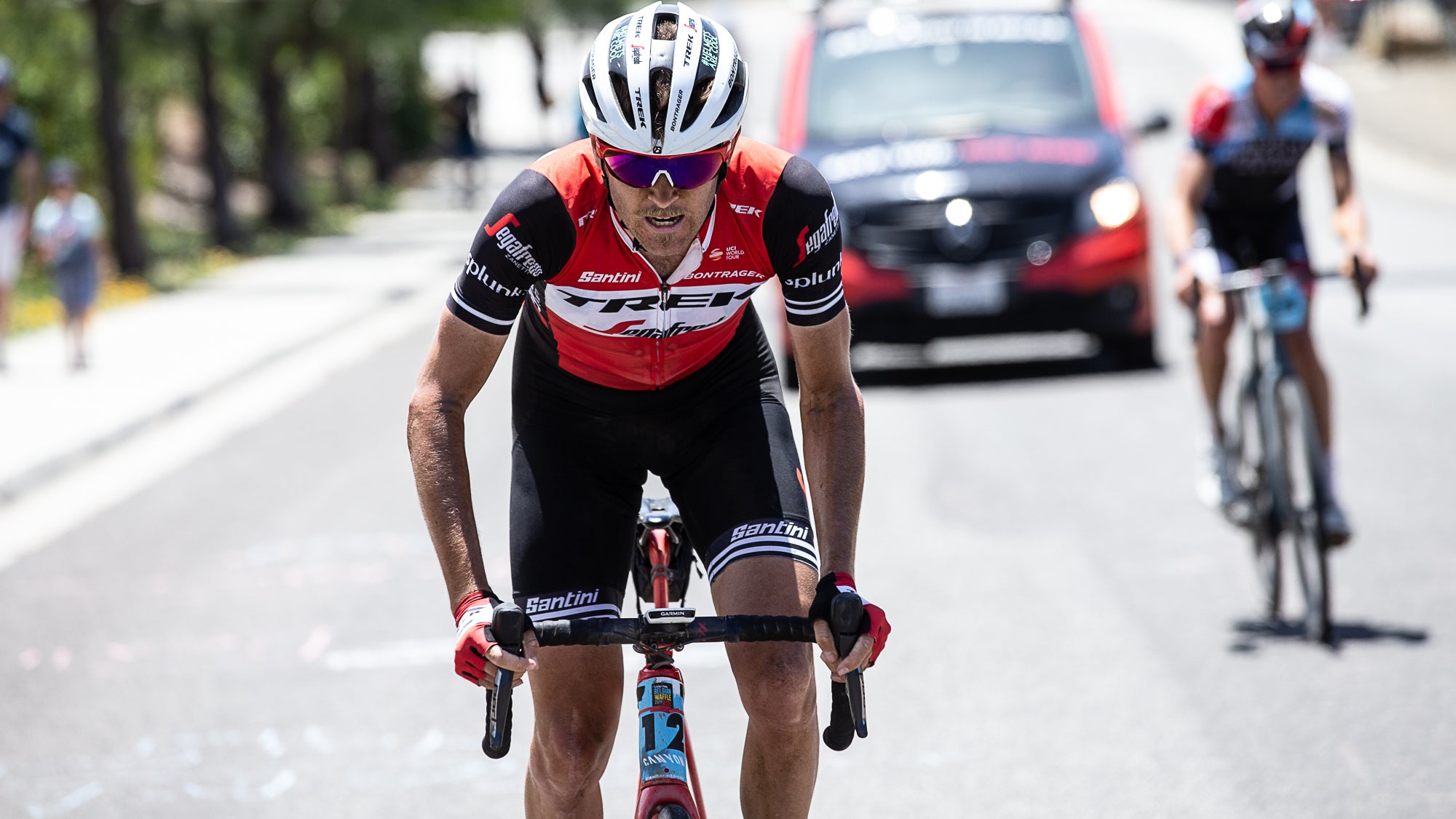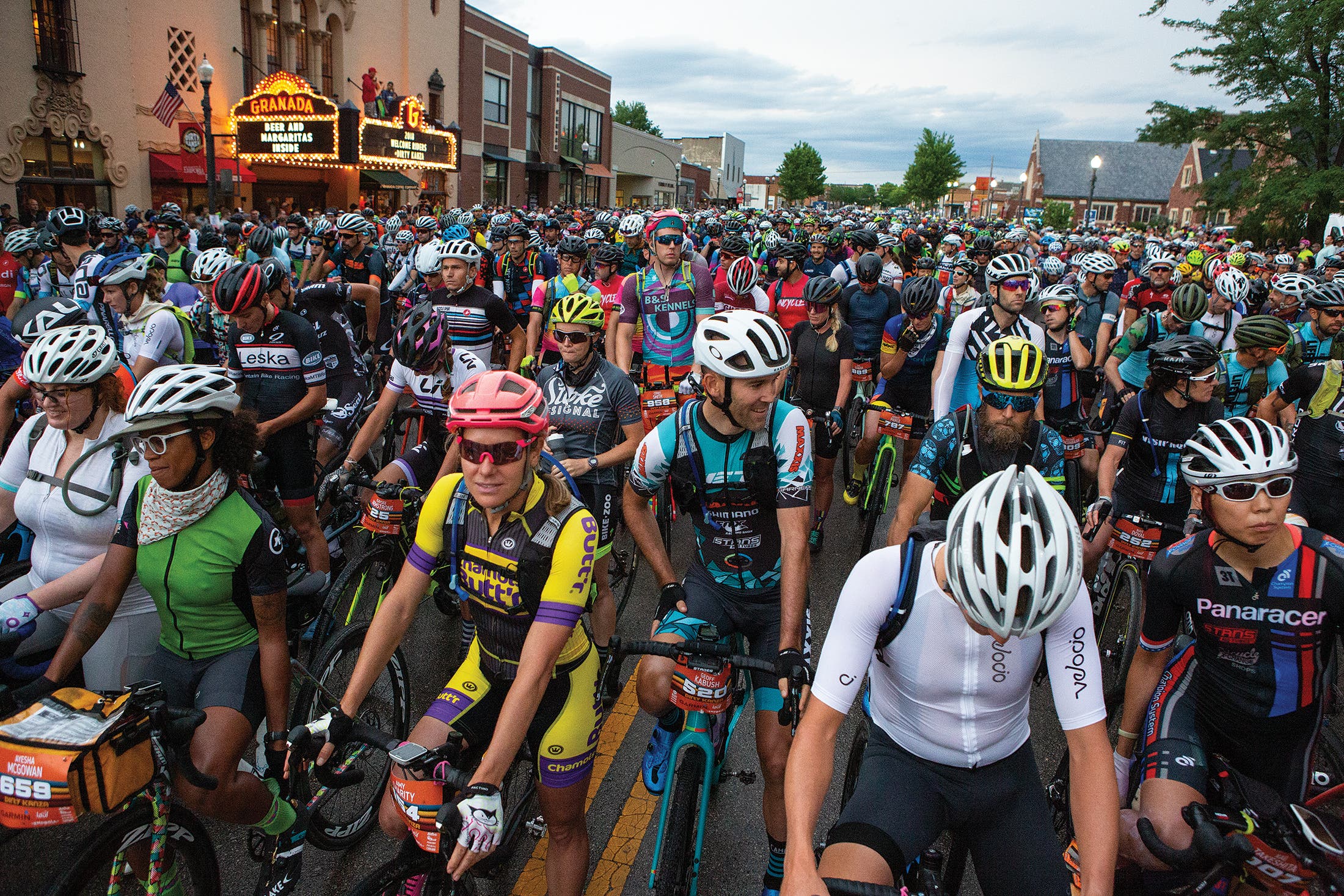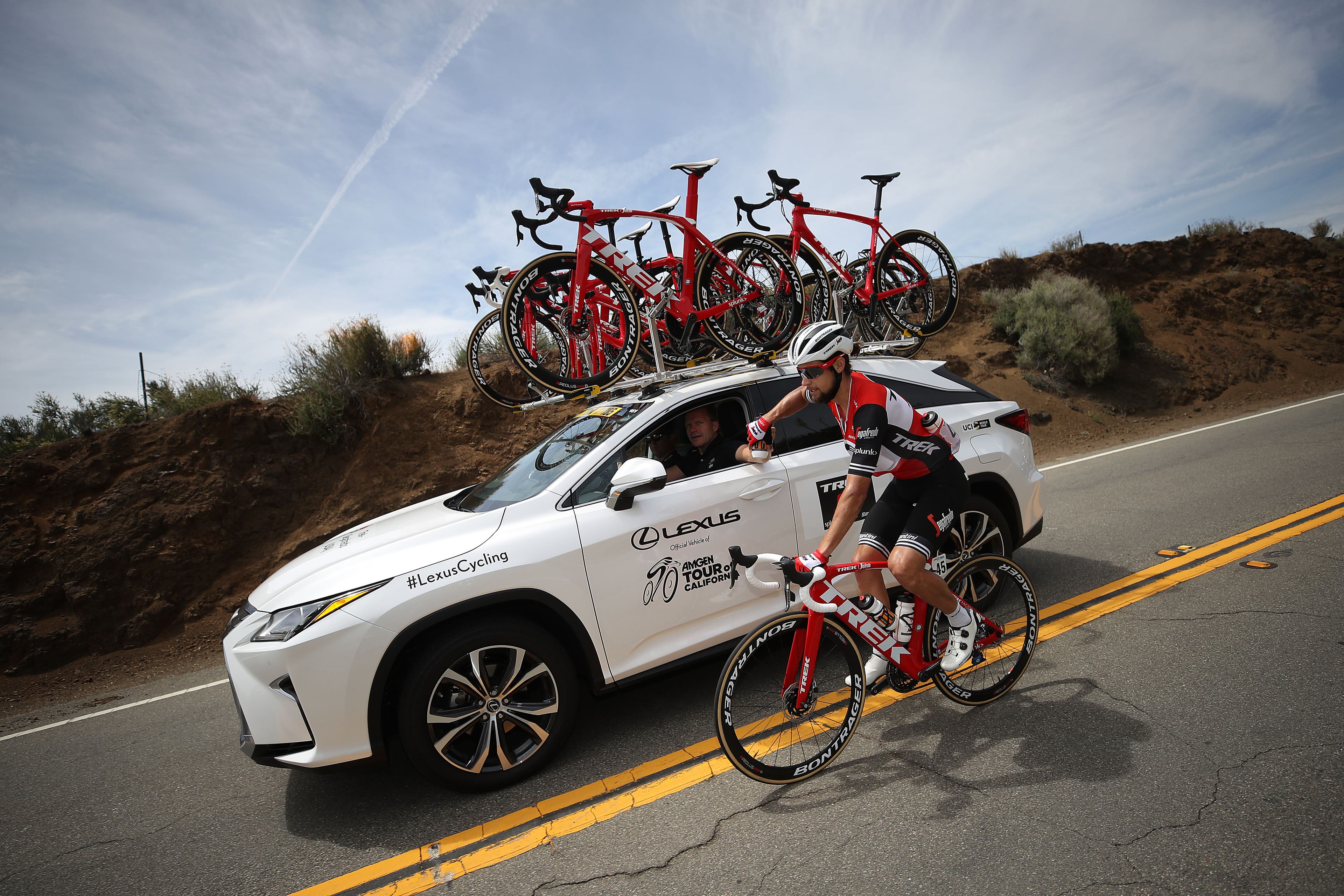WorldTour pros will race to win at Dirty Kanza 200

At the base of Double Peak, Peter Stetina left Eddie Anderson for good to head in for the win. Photo: Wil Matthews
They will snap selfies.
They will drink beer and give high fives.
And when the gun goes off, they will race to win.
This weekend five WorldTour road racers are participating in Dirty Kanza 200, gravel cycling’s marquee international event. Of the five, Alex Howes (EF Education First), Peter Stetina, and Kiel Reijnen (both Trek-Segafredo) all told VeloNews that they intend to race for the victory at the event.
“Step one is just to finish, and even that could be a real challenge,” Howes said. “I’d like to be in the mix, somewhere in the top-10. The dream is a victory, but we’ll see.”
“Yeah, we’re going to drink beers and take in the scene of gravel and have fun—it’s really refreshing and not robotic,” Stetina said. “It’s also a race and whenever you have a number on your back, you want to win. We’re taking it seriously.”
Whether or not the WorldTour riders actually can win—that’s an entirely different question. All three downplayed their chances at winning and acknowledged the race’s challenging conditions, strong field, and unique set of rules. The 200-mile race in eastern Kansas has become infamous for doling out physical punishment. Temperatures often soar into the 90’s, and the area is swept by gusting winds.
The race is held on rocky, rough farm roads which are known to shred tires and shatter rims. The men’s winner typically crosses the line after 11 or so hours of intense racing.
“I think it doesn’t matter how bad you want to win because this could be one of those races where it’s all about whose drivetrain doesn’t explode,” Howes said.
Riders must fix their own flat tires and carry all of their nutrition throughout the race — they can refuel or attend to tech issues at one of the two tech zones along the course (plus a water oasis), but otherwise, outside help is not allowed.

These specific challenges are worlds apart from a typical WorldTour road race, where team cars supply riders with nourishment, and races rarely go beyond the six-hour mark.
“I’m definitely going to try and win, but that doesn’t guarantee anything,” Reijnen said. “I think it would be a mistake for people who are following the race to just assume that being a WorldTour racer means we’re going to be good at gravel racing.”
Reijnen said the race’s distance alone presents major challenges around fueling and race strategy.
“I fully expect to have to figure a lot of things out on the fly because I just don’t race for 12 hours,” Reijnen said. “There’s no way I would know how to eat for 12 hours. Do you have breakfast beforehand? Does the race start hard? Who attacks in a 12-hour race?”
The inclusion of WorldTour pro riders brings an interesting new wrinkle to the race, where the 2,000-rider field is comprised almost entirely of age-group riders, retired professionals, and gravel specialists from around the country. Earlier this year EF Education First announced its intentions to send Howes, Taylor Phinney, and Lachlan Morton to Dirty Kanza as part of a new apparel partnership with Rapha. Then, this week, Trek-Segafredo revealed it would send Reijnen and Stetina to compete in the race aboard custom custom-built Trek Checkpoint gravel bicycles.
The race awards no prize list to its winners, however the presence of media, when matched with the race’s international buzz, has made it an attractive destination for riders and team sponsors. In subsequent years, pro and amateur riders have flocked to Dirty Kanza to challenge themselves against the course, and battle for the win. Last year, retired road racers Ted King and Joshua Berry finished first and second, with pro mountain biker Geoff Kabush crossing in third.
Stetina said he followed the event’s growth from his training friend, Yuri Hauswald, the 2015 champion. In late 2018 Stetina pitched Trek on a nontraditional racing calendar that included Dirty Kanza, Southern California’s Belgian Waffle Ride, and other events. The team liked the idea, and agreed to put manpower and resources behind the project. In addition to racing on the custom bikes—Stetina and Reijnen do intend to use clip-on aero bars—Trek will send a mechanic and brand representatives to the race to aide the two riders.

Stetina said he expects fierce competition from riders who focus on gravel and long-distance events. Last month Stetina won the Belgian Waffle Ride, and said the strong field nearly cracked him.
“These dudes can rip—I had to pull out all of my tricks and scrape the bottom of the barrel to win BWR,” Stetina said. “This is the highlight of their calendar, and a lot of these guys are really strong and have a ton of experience. Kiel and I have an advantage in WorldTour fitness, but with everything else, we’re on the back foot.”
While victory is a top priority, all three acknowledged that they want to soak in the grassroots feel of the gravel race, which is worlds apart from a typical WorldTour event. At the finish line of a typical WorldTour event, riders must push through throngs of fans and media to reach their hulking team busses.
The finish line at Dirty Kanza, by contrast, boasts a carnival with tents selling burgers and beer. Win or lose, those finish-line accoutrements present an enticing goal.
“I’d like to bring the gravel racing vibe to road racing, and not the other way around,” Reijnen said.